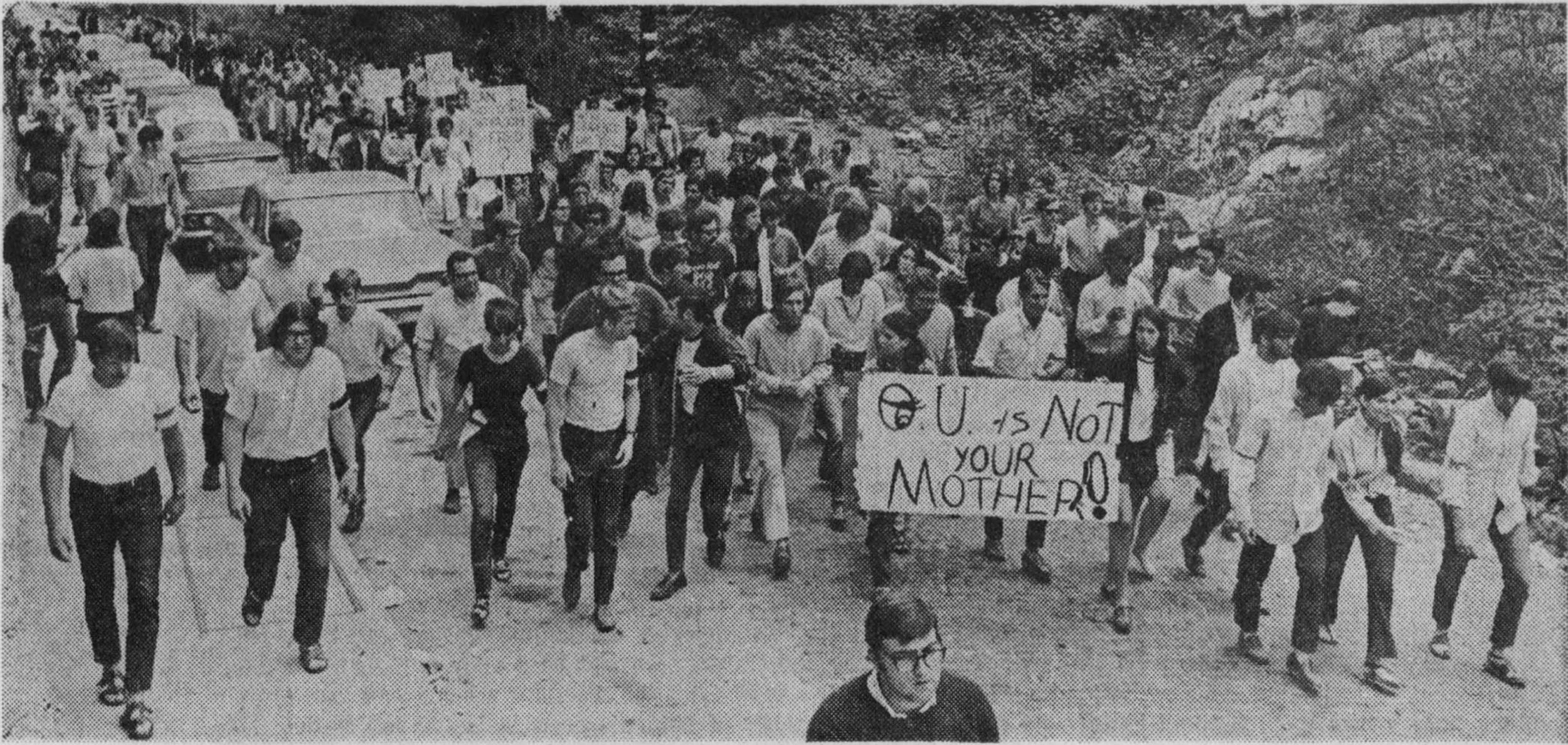RETRO REPORT: Free Speech at Ohio U
Protests marked the move from Chubb Library, now Chubb Hall, to Alden Library. Photo taken from Ohio University Digital Archives.
Ohio University students have garnered the reputation of boisterous, party-going individuals. Their loudness is not limited to fun times, however. The school has a long history of students using their voice to protest issues they find important. From the Vietnam War to worker’s rights to now tuition increases, racial tensions, and abortion rights. Ohio U students are making noise for good, exercising their constitutional right to free speech.
The first example that often comes to mind for many regarding students protesting on college campuses are demonstrations opposing the Vietnam War during the 1960s and 1970s. While many Ohio U students partook in this resistance, their use of free speech has also involved campus issues.
The construction of Alden Library broke ground in 1966, replacing Chubb Library, now Chubb Hall. It opened in 1969 and was named after Ohio U’s outgoing president, Vernon R. Alden. While the event was marked with excitement for many, the library’s opening day also gave around 200 students the audience they needed to protest university social regulations.
These social regulations were not specified, but Dan Cordes, a protest leader, mentioned dorm autonomy and others brought up women’s hours.
These established a curfew for the female students of Ohio U and restricted when they could study in the library. They were later abolished in 1971 after multiple protest over the same year, according to an Ohio U housing and residence life archive.
Ohio University students have a long and rich history of protesting national, state, local and campus issues. Image was taken from the Ohio University Digital Archives, specifically from the front cover of the May 26, 1969 copy of The Post.
In addition to the library sit-in, some students participated in a hunger strike. Student body president, Alicia Woodson, emphasized that the only thing the students had control over was their own bodies.
Fred Johnson, the Board of Trustees chairman at the time, was the main target of the protest. Students bombarded him with questions, to which he replied with brief answers.
“Any position I take only reflects the position the Board of Trustees have taken,” Johnson said, according to a 1969 copy of The Post. “Personalities do not enter into it. If I am to be the terrible image of the Board of Trustees, this is all right, as long as I feel I am representing the board’s views. I go to bed at night and sleep quite well. What others say about me, I couldn’t care less.”
It should be noted that President Alden made an active effort during his term to protect students’ free speech. In 1962, Alden established a “Speakers Policy” which defended free speech and expression on campus, according to an Ohio U student affairs post. Despite Alden’s progressive stance, the university continued to add demonstration regulations to the student handbook. They even restricted what could be on posters, banners and handouts as Vietnam War protests increased during the late ‘60s and ‘70s.
Alden acknowledged the ongoing protests, and the university’s need to change in his farewell speech, a sentiment that should still hold true today.
“It is important that the general climate of the university should be one which helps prepare students in a realistic way for their futures. It means preparing them to live with change,” Alden said according to the same issue of The Post. “And that means the University itself must be prepared to face changes in its offerings, its policies and procedures, and its relations to the community, the nation and the world.”


